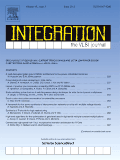
INTEGRATION-THE VLSI JOURNAL
Scope & Guideline
Elevating Knowledge in Hardware and Architecture
Introduction
Aims and Scopes
- Integrated Circuit Design and Implementation:
The journal emphasizes novel methodologies and technologies for designing integrated circuits, including analog, digital, and mixed-signal circuits, with a focus on improving performance and reducing power consumption. - Hardware Security and Cryptography:
Research on hardware security measures, including Physical Unclonable Functions (PUFs), secure cryptographic implementations, and techniques to counteract hardware attacks, is a significant focus of the journal. - Neurocomputing and Machine Learning Applications:
The integration of machine learning algorithms into VLSI design and architecture is a growing area of interest, with papers exploring neural network implementations and hardware accelerators. - Emerging Technologies and Novel Devices:
The journal covers innovative devices such as memristors and their applications in circuits and systems, alongside research on advanced materials and fabrication techniques. - Reliability and Fault Tolerance in VLSI Systems:
Research addressing the reliability of VLSI systems, including soft error mitigation strategies, aging effects, and fault-tolerant design techniques, is prominently featured. - High-Performance Computing Architectures:
Topics related to high-performance computing, including FPGA and ASIC designs optimized for specific applications, are integral to the journal's scope. - Signal Processing and Communication Systems:
The journal publishes research on VLSI architectures for signal processing applications and communication systems, focusing on efficiency and performance improvements.
Trending and Emerging
- Machine Learning and AI in VLSI Design:
There is a significant increase in research exploring the integration of machine learning techniques for optimizing VLSI design, including automated synthesis and intelligent routing. - Memristive and Neuromorphic Computing:
The use of memristors and neuromorphic computing architectures is gaining traction, with studies focusing on their applications in efficient computing and advanced signal processing. - Energy-Efficient Computing Solutions:
A strong trend towards energy-efficient designs is evident, particularly in the context of IoT and wearable devices, reflecting growing environmental concerns and energy costs. - 3D Integration and Packaging Technologies:
Research on 3D integration techniques and advanced packaging methods is emerging as a key area, driven by the need for higher performance and compact designs. - Robustness and Reliability Enhancements:
Increasing attention is being paid to enhancing the robustness and reliability of VLSI systems, particularly in the context of soft error resilience and aging effects. - Quantum and Hybrid Computing Architectures:
There is a burgeoning interest in exploring quantum computing principles within VLSI design, particularly in creating hybrid systems that leverage both classical and quantum techniques. - Advanced Security Mechanisms:
Research into advanced security mechanisms, including hardware-based security solutions and cryptographic methods, is on the rise, reflecting heightened concerns over cybersecurity.
Declining or Waning
- Traditional Analog Circuit Design:
Research focusing on conventional analog circuit design techniques appears less frequently, as the field shifts towards more integrated and digital approaches. - Basic CMOS Technology Studies:
There is a waning interest in purely theoretical or foundational studies related to basic CMOS technologies, likely due to the rapid advancements and availability of more sophisticated technologies. - Low-Level Hardware Verification Techniques:
Papers centered on low-level hardware verification methods are appearing less often, possibly overshadowed by more advanced verification techniques that leverage machine learning and AI. - Single-Use Specialized Devices:
The focus on single-use or niche devices is declining as the market and research community lean towards versatile, multi-functional integrated solutions. - Static Design Methodologies:
Static design methodologies that do not incorporate adaptive or dynamic elements are seeing reduced attention, as there is a growing preference for designs that can adapt to varying conditions.
Similar Journals

Neuromorphic Computing and Engineering
Innovating Neuromorphic Architectures for TomorrowNeuromorphic Computing and Engineering, published by IOP Publishing Ltd, stands as a premier open-access journal dedicated to the interdisciplinary field of neuromorphic computing, which integrates principles of artificial intelligence and hardware architecture. Launched in 2021, this journal plays a pivotal role in addressing the surge of research in intelligent systems mimicking neurobiological architectures, thus fostering innovation across various disciplines, including electrical and electronic engineering and materials science. With an impressive Q1 ranking across multiple categories in 2023, including Artificial Intelligence and Hardware and Architecture, it attracts a global audience eager to explore cutting-edge developments. The journal is positioned to deliver high-impact research, evident by its Scopus rankings—particularly its notable standing in Electrical and Electronic Engineering (Rank #217/797) and Electronic, Optical and Magnetic Materials (Rank #80/284). Neuromorphic Computing and Engineering not only contributes to the academic discourse but also provides an accessible platform for researchers, professionals, and students to disseminate and discuss their findings, reflecting the critical advancements in this rapidly evolving domain.
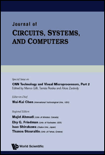
JOURNAL OF CIRCUITS SYSTEMS AND COMPUTERS
Innovating Electrical Engineering Through Research ExcellenceJOURNAL OF CIRCUITS SYSTEMS AND COMPUTERS is a pivotal publication in the fields of Electrical and Electronic Engineering as well as Hardware and Architecture, published by World Scientific Publishing Co. Pte Ltd in Singapore. With an ISSN of 0218-1266 and an E-ISSN of 1793-6454, this journal has contributed significantly to the discourse surrounding innovative research and technological advancements since its inception in the late 1990s. It currently holds a Q3 ranking in both relevant categories, reflecting its competitive stature and providing researchers, professionals, and students a substantial platform for disseminating findings. The journal covers a diverse range of topics, focusing on the design, analysis, and application of circuits, systems, and advanced computing technologies. Authors benefit from a rigorous peer-review process, ensuring high-quality publications that drive the field forward. The journal's commitment to excellence underscores its importance in fostering academic collaboration and knowledge exchange, making it a vital resource for anyone dedicated to advancing the domains of electrical engineering and computer science.

Journal of Cryptographic Engineering
Exploring the depths of cryptography for a safer digital world.The Journal of Cryptographic Engineering, published by Springer Heidelberg, is a prominent platform dedicated to advancing the field of cryptography and its applications in secure communication and information security technologies. With the ISSN 2190-8508 and E-ISSN 2190-8516, this journal showcases rigorous and innovative research contributions from 2011 to 2024, reflecting its commitment to excellence in academic publishing. Recognized among the Q2 category in Computer Networks and Communications and Software, it ranks impressively within the Scopus framework, securing positions in the 59th and 54th percentiles respectively. The Journal aims to facilitate a comprehensive understanding of cryptographic techniques, promote collaboration among researchers, and provide a vital resource for students and professionals. By maintaining high standards of peer review and providing a platform for cutting-edge research, it plays a crucial role in shaping the future of cryptographic engineering.
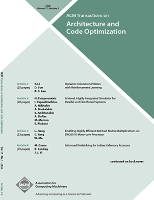
ACM Transactions on Architecture and Code Optimization
Transforming Ideas into High-Performance SolutionsACM Transactions on Architecture and Code Optimization, published by the Association for Computing Machinery (ACM), serves as a premier journal in the fields of architecture, hardware, and software optimization. With an ISSN of 1544-3566 and E-ISSN of 1544-3973, this journal provides a platform for innovative research and discussion from 2004 to 2024, reflecting its commitment to the evolving landscape of computer science. Holding a Q2 ranking in key categories such as Hardware and Architecture, Information Systems, and Software, it stands out in its field, catering to a broad audience of researchers, professionals, and students alike. While the journal does not currently offer open access, subscribers can benefit from an array of valuable insights into cutting-edge techniques for optimizing code and architectural designs. Its rigorous peer-review process ensures that only high-quality, impactful research is published, making it an essential resource for those seeking to advance their knowledge and practice in these vital areas of computing.
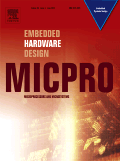
MICROPROCESSORS AND MICROSYSTEMS
Pioneering Research in Microprocessor TechnologyMICROPROCESSORS AND MICROSYSTEMS, published by ELSEVIER, stands as a pivotal journal in the fields of microprocessor technology and microsystem design, with a focus on cutting-edge research that bridges artificial intelligence, computer networks, hardware architecture, and software development. With an ISSN of 0141-9331 and an E-ISSN of 1872-9436, the journal is recognized for its significant contributions to the academic community since its inception in 1978 and continues to shape the discourse leading into 2024. Its impact is evidenced by its Scopus rankings, placing it among the top quartiles in multiple disciplines, including Q3 in Artificial Intelligence and Q2 in Computer Networks and Communications. Although it does not offer open-access options, the journal remains a vital resource for researchers, professionals, and students seeking to delve into innovative developments and applications within the realms of microprocessors and embedded systems. The journal is headquartered in Amsterdam, Netherlands, and aims to foster dissemination and discussion of scholarly work that advances the understanding of practical and theoretical aspects of microprocessor and microsystem technologies.
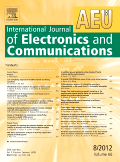
AEU-INTERNATIONAL JOURNAL OF ELECTRONICS AND COMMUNICATIONS
Pioneering Insights for a Connected Future.AEU - International Journal of Electronics and Communications, published by Elsevier GmbH, is a leading peer-reviewed journal that has become an essential resource for scholars and professionals in the fields of electronic communications and electrical engineering. With an impressive impact factor reflective of its rigorous scholarship, the journal holds a Q2 ranking in the category of Electrical and Electronic Engineering, placing it in the top tier of its field. This journal primarily focuses on publishing innovative research, reviews, and advancements that facilitate the convergence of electronics and communication technologies. As it strides through various converged years, from 2001 to 2024, AEU delivers critical insights and cutting-edge developments to a global audience, encouraging collaboration among researchers and practitioners. With its accessible platform, researchers are invited to contribute their findings and to stay abreast of the latest trends and discoveries in this dynamic field, strengthening the journal’s vital role in shaping the future of electronics and communications.
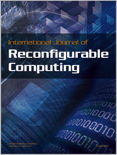
International Journal of Reconfigurable Computing
Empowering Innovations in Hardware FlexibilityWelcome to the International Journal of Reconfigurable Computing, a leading open-access platform dedicated to the exploration of innovative methodologies and applications in the field of reconfigurable computing. Published by HINDAWI LTD, this journal has been fostering scholarly communication since its inception in 2008. With an ISSN of 1687-7195 and an E-ISSN of 1687-7209, it offers researchers valuable access to the latest advancements and trending research in hardware and architecture, evidenced by its quarterly ranking in the Q4 category for 2023. Researchers, professionals, and students alike will find this journal an invaluable resource for staying updated in a rapidly evolving domain, notwithstanding its current Scopus ranking of 154 out of 177 within its category, reflecting a burgeoning opportunity for growth and engagement in this niche. Submitting their research to the International Journal of Reconfigurable Computing not only connects authors with a global audience but also contributes to the collective advancement of knowledge in this critical area. Explore the vast potential of reconfigurable systems and become part of a community dedicated to pushing the boundaries of computing technology.

JOURNAL OF COMMUNICATIONS TECHNOLOGY AND ELECTRONICS
Advancing the Frontiers of Communication and Electronics.JOURNAL OF COMMUNICATIONS TECHNOLOGY AND ELECTRONICS, published by PLEIADES PUBLISHING INC, is a prominent academic journal dedicated to advancing the fields of communications technology, electronics, and materials science. With an ISSN of 1064-2269 and an E-ISSN of 1555-6557, this journal has been a pivotal resource since its inception in 1995, providing a platform for researchers and professionals to disseminate and explore groundbreaking studies and innovations up to the year 2024. Although currently categorized in Quartile 4 for Condensed Matter Physics and Quartile 3 for Electrical and Electronic Engineering, it continues to thrive in its role, offering insights and findings that contribute to its evolving impact within these disciplines. Researchers will find valuable content that emphasizes critical advancements in technology and materials, supported by robust Scopus rankings that highlight its competitive standing within its category. With no open access option, the journal provides exclusive access to its subscribers to delve into high-quality peer-reviewed articles, making it an essential resource for those at the forefront of scientific inquiry and innovation.
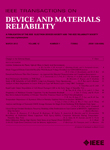
IEEE TRANSACTIONS ON DEVICE AND MATERIALS RELIABILITY
Advancing Knowledge: The Nexus of Device Performance and Material Science.IEEE Transactions on Device and Materials Reliability stands as a leading journal in the field of reliability engineering, specializing in the intricate connections between device performance and materials efficacy. Published by the renowned IEEE-Institute of Electrical and Electronics Engineers Inc., this journal boasts a commendable impact factor and exhibits robust Scopus rankings across various categories, including electrical and electronic engineering and safety, risk, reliability, and quality. With a publication timeline from 2001 to 2024, it serves as an essential resource for researchers and professionals alike, providing comprehensive insights into current advancements and challenges in device reliability and materials science. Although it operates under a subscription model, the journal's extensive contributions are crucial for fostering significant innovations that ensure the integrity and longevity of electronic devices in a rapidly evolving technological landscape. Researchers, professionals, and students delving into this vital domain will find IEEE Transactions on Device and Materials Reliability a valuable platform to disseminate their findings and explore the latest trends.
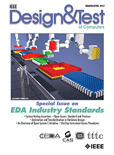
IEEE Design & Test
Pioneering Insights in Electronic System DesignIEEE Design & Test is a leading academic journal published by the IEEE-INST ELECTRICAL ELECTRONICS ENGINEERS INC, dedicated to advancing the fields of Electrical and Electronic Engineering, Hardware and Architecture, and Software. With an ISSN of 2168-2356 and an E-ISSN of 2168-2364, the journal spans from 2013 to 2024, offering valuable insights and peer-reviewed research that addresses critical challenges in the design, verification, and testing of electronic systems. Recognized for its quality, the journal holds a Q2 designation in Electrical and Electronic Engineering and ranks within the top quartiles of its category, making it a notable resource for professionals and scholars alike. Its Scopus rankings, particularly a rank of #354 in Electrical and Electronic Engineering, underscores its significance and relevance in the rapidly evolving technological landscape. Although not currently open access, the journal remains committed to disseminating innovative research that shapes the future of technology, ensuring that researchers and practitioners stay at the forefront of their disciplines. IEEE Design & Test serves as an essential platform for exchanging ideas, fostering collaboration, and driving advancements in engineering and computer science.